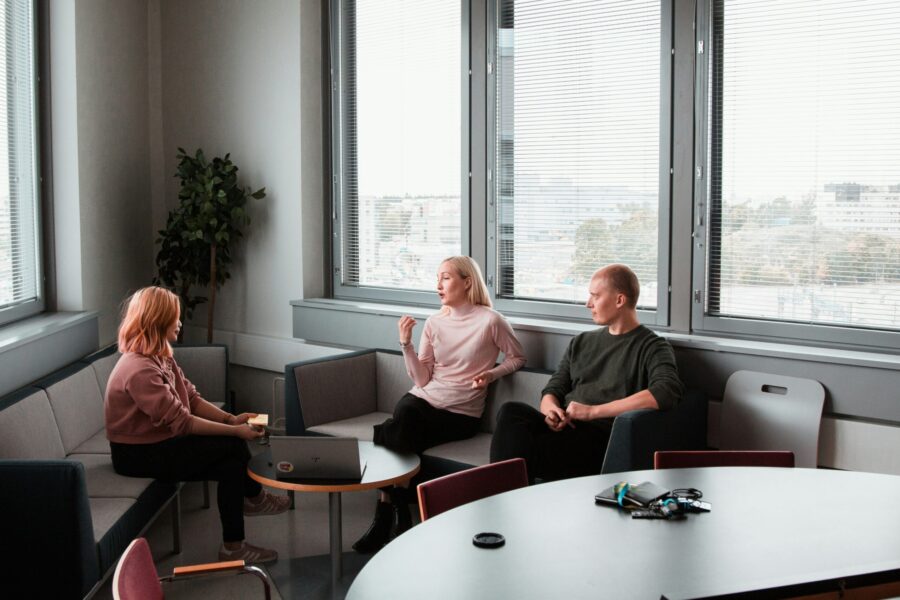To thrive in today’s fast paced work environment, it’s so important to structure your day – and also be able to help your teams to structure their days – in a way that balances output with wellbeing.
A simple recipe to doing this is to break down your “must haves”, “should haves” and “could haves”
This helps you think clearly about where your focus needs to be, setting you up for the day, and the week ahead. Using this recipe means that you are thinking about what you can achieve alongside your own wellbeing.
We recently discussed this at an Insights Live event, with over 100 delegates. We all agreed that taking time to list your “must haves”, “should haves” and “could haves” – and encouraging your team members to do the same – helps you create your own recipe for a successful day – you just have to decide what ingredients you need to make that happen.
Must Haves
Your “must haves” represent the core elements that lay the groundwork for a productive, fulfilling and balanced day. These are your non-negotiables that create stability and purpose.
Should Haves
“Should haves” are vital contributors to your workplace satisfaction and personal fulfilment, while they may not be as critical as your “must haves” their presence often determines the difference between a good day and a great day.
Could Haves
The “could haves” are a space for elements which could be valuable for you but are non-essential to you in the working day.
Your Perfect Recipe
While everyone’s “perfect recipe” may be different, there are some key ingredients that consistently contribute to maximising productivity and wellbeing.
Clear Objectives
Without a clear direction, productivity can fall flat. Setting specific and achievable goals gives structure to your work, making sure you’re focusing on the right tasks. Starting each day by identifying your top three priorities, breaking them down into smaller steps makes them more manageable and helps to keep you on track.
Be realistic about what you can achieve, this will help you prioritise without overwhelming yourself.
Collaboration
Does collaboration give you a boost in your working day? Regular check-ins with your colleagues or teams can boost morale and build a sense of community. It’s also a great way of sharing progress and challenges. As many of us now work virtually, this is probably a “must have” having regular 1:1’s and time for informal catchups can build a strong team spirit and “water cooler” moments even when not based in the same location.
Regular Breaks
It’s tempting to work straight through in an effort to be more productive, but this can often lead to burnout and results in work of a lower quality. Regular breaks are essential for recharging and maintaining focus. After a lengthy meeting, take a quick walk or take some time to move your body. Movement, even in short bursts helps to keep energy levels high and fight off mental fatigue.
Deep Focus Time
Constant notifications and distractions can easily become part of the working day with Teams, email and phone notifications, it can be harder to find time for uninterrupted, focused work. Carving out time for “deep focus” in your day, allows you to fully immerse yourself in complex tasks without interruptions.
Block out time in your diary so others know not to disturb you during this time, try using do not disturb settings, noise cancelling headphones or listening to a focus playlist. Many phones provide the ability to lock down certain apps, so you don’t get disturbed by notifications during core hours of the day. Protecting your time helps you make a significant progress on your most important work.
Learning and Growth
Incorporating time for professional growth may seem secondary, but it’s crucial for long term motivation. Whether it is learning that is specific to your sector or your job role, dedicating a small part of your day can help to keep you inspired and excited about your work.
Reflection and Planning
Taking some time at the end of each day to reflect on what you’ve achieved and to plan for the next day provides a sense of achievement and acknowledgement of what is yet to be completed. Reflection helps you to assess progress and understand what went well during the day.
Matching tasks to energy levels
Understanding your energy levels throughout the day can help you to organise what tasks to tackle first and which ones are better suited to later in the day. High-energy in the morning? Tasks that require strategic planning and complex problem solving are best tackled when you are at your most focused. Afternoon slump? Leave any administrative work and routine tasks that don’t require as intense concentration for these moments.
The perfect workday isn’t always about squeezing in as much work as possible but about creating a sustainable, balanced approach that values both productivity and wellbeing. By identifying your key ingredients of “musts haves”, “could haves” and “should haves” you’re setting yourself up for a fulfilling and productive day, everyday.
Increasing your awareness of self is a great way to get to the bottom of why certain ingredients are so key to your productivity. Tools such as Insights Discovery can be a great starting point for you and your teams.
Next time you’re planning your workday, think of it as crafting a recipe. Adjust the ingredients as needed. And don’t be afraid to try new techniques. Over time, you’ll develop a personalised routine that helps you reach your full potential and keeps you engaged, resilient and ready for anything.
Ang Brennan
Ang Brennan leads a team whose purpose is to attract the best global talent, as well as inspire and support more than 650 employees to reach their full potential.Ang is passionate about #lifelonglearning and strives to role model leadership behaviours that create a collaborative and inclusive culture where people can flourish.
Her varied career path always has people at the heart, starting in the travel industry with customers at the centre, leading and growing sales teams and her previous role was developing and inspiring leaders at Sky. She has over 20 years' experience of being responsible for all things people-orientated and helping leaders, managers and teams reach their full potential through innovative and empowering learning.



